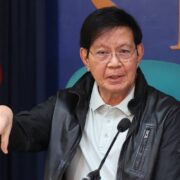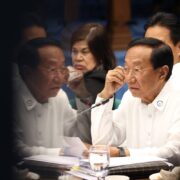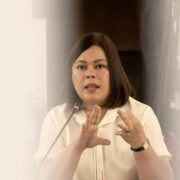Great job, Lolo Kiko: A reflection on Pope Francis’ greatest accomplishments

I am moved as I review a video of my recent close encounter with Pope Francis, our Lolo Kiko. It was last January during the Jubilee for communicators. He was being wheeled through the central aisle of the auditorium, people crowding toward him. A lady nearby was shouting words of thanks, and I joined her in expressing my gratitude. Beside me was a fellow Pinoy who kept on repeating, Mabuhay, Lolo Kiko!
I shouted: Te queremos mucho, Santo Padre. Great job! It was a conviction I have always kept.
As a theologian, I try to base my thinking on current issues from the perspective of faith. Faith in all the teachings of Jesus and His Church, which includes faith in God who decided to speak and govern through a pope.
Pope Francis viewed the Church and the world as a field hospital—so many people wounded, so much suffering. And what struck me most was his emphasis on mercy. It is emblazoned in his motto: Miserando atque eligendo, meaning having mercy and choosing, showing that mercy will permeate his entire pontificate.
More importantly, he gave it a strong theological basis. Mercy is not one more trait of God, it is the central truth of God. This insight has operationalizing implications on how we are to live our lives and on how the Church has to be organized.
I believe these are his top seven accomplishments:
- God is mercy: be merciful. He helped us focus on the innermost truth of God. If we want to be united with God, our goal is to be merciful to the people around us, especially the sinners, the ignorant, the poor, and the needy.
- Centrality of the kerygma: God loves us, died for us, is alive, and is near us. Contemplating God who loves us infinitely at every moment moves us to love God and neighbor generously.
- Primacy and infinite dignity of each person. We will truly be able to love God—a trinity of persons—and neighbor if we value each person’s infinite dignity. Current moral deviations, like abortion, same-sex marriage, climate indifference, lack of care for sinners, are rooted in forgetting the infinite dignity of each person, each one of whom we have to serve.
- Co-responsibility of everyone in the Church (synodality). Since all of us are other Christs, all of us are Church. All of us are co-responsible for directing our journey toward God. This call of Pope Francis unleashes all of the energies of Catholics to move the Church forward.
- Reform of Church governance for evangelization. Since evangelization is the mission and life of the Church—the reason we exist—then the transmission of truth (doctrine) and the Church’s governing rules (canon law) should be at the service of leading people to Christ through the Gospel.
- Joy of the Gospel, of sanctity, and of the family. The title of His three key documents contained the idea of joy. Christian life is all about joy. Living true to Christ’s work of evangelization, to His call that we be saints, and caring for the family are sources of the greatest joy.
- Basis for peaceful coexistence of the Church with liberals, secularists, Muslims, and other groups. Pope Francis laid the groundwork for establishing harmony with groups that historically had relationship issues with the Church.
He understood God, whom he loved with all his heart and might. Understanding God so deeply, he has left a legacy that will not last only until this year. Since mercy is the central truth of God and God’s nature is forever, this legacy is for all times. We are fortunate—deeply fortunate—for being his children in this new stage of the Church—a stage of the centrality and operationalization of mercy—that will have to last forever.
RAUL NIDOY,
ranidoy@gmail.com

















